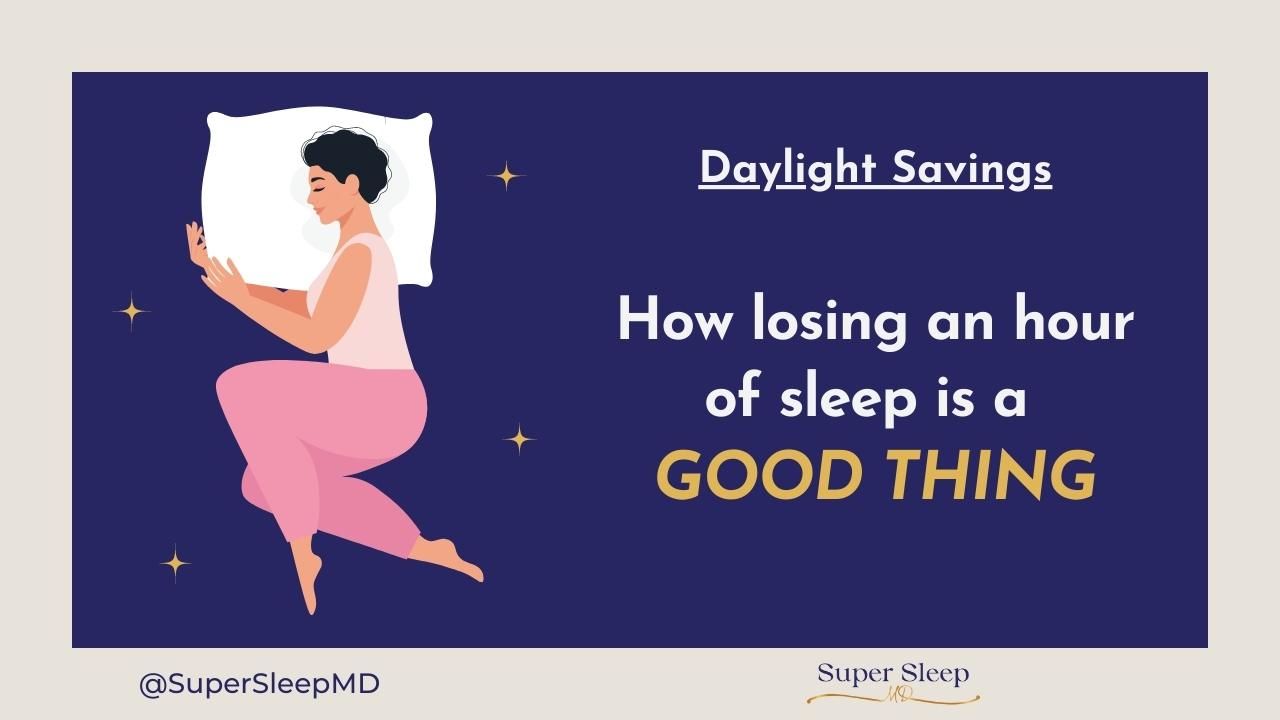How losing an hour of sleep is a GOOD thing
Mar 12, 2023
Losing an hour of sleep because of Daylight Saving Time (DST) is a challenge for most people. You wake up on Sunday morning feeling robbed of rest.
And for the next few days, you’ll check the clock and have a little surprise that it’s already that late. Boo!
Where is the silver lining here?
For at least a few days after DST, the importance of sleep is highlighted by the sleep deficit. If you didn’t tolerate that hour of sleep loss too well, imagine how great your life could be if you got adequate amounts of sleep on the regular!
This is fantastic news.
When you are well-slept, you have access to your very best self. The well-rested version of you is a LOT easier to live with, work with, and play with. So here is what you can do: measure your sleep nightly to know how much sleep you are getting. I recommend doing this with a wearable sleep tracker. Look at that total sleep time every day, and think about it as you go through your day. Are you getting enough sleep to feel vibrant and alert during the day? Are you getting enough sleep to protect your health?
This sleep loss of DST gives you lots of opportunities to measure your daytime sleepiness and correlate it with how much sleep you are getting. This is one way to know how much sleep you need. There is a way to measure how alert or sleepy you are. Go to the free Membership to get it by <<<clicking here>>>. Look for the Stanford Sleepiness Scale under Sleep Assessments after logging into your Library. How does it work for you?
Getting familiar with your sleepiness ratings at different points during the day allows you to reconnect with your body’s signals for sleepiness. It’s normal to be a little sleepy when you wake up, then alert around 10 or 11 am. You’ll have a natural dip in alertness in the early afternoon, then an energy boost in the evening. At night, keep an eye out for your ideal “sleep window.” That sleep window is when your head should be hitting the pillow and it’s Lights Out for your brain.
In the days after DST, try to avoid napping. This gives you extra sleep pressure and cuts down on the time it takes you to fall asleep. Your brain likes this very much. And your brain ALSO likes a consistent wake-up time, 7 days a week. So go to bed when you are sleepy (listen to the signals from your internal clock) and lock in your wake-up time with the external clock.
This will get you over the effects of DST so you can move forward to enjoy a beautiful spring.
You've got sleep problems...
so is it time for a sleep study?

